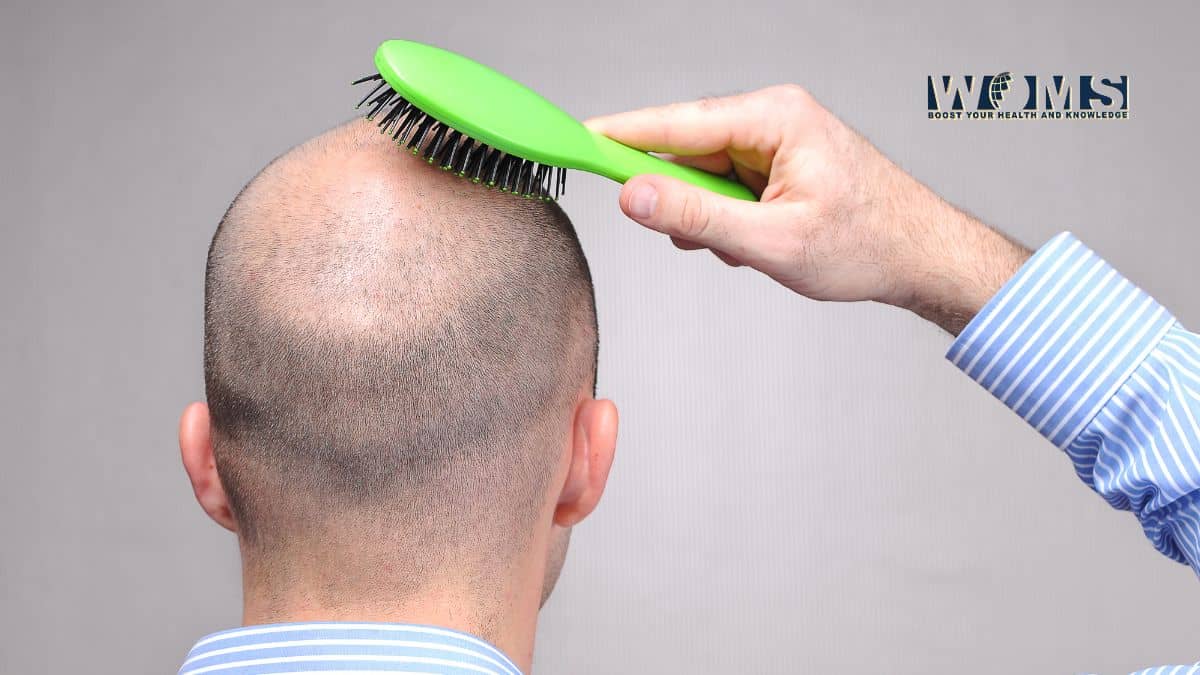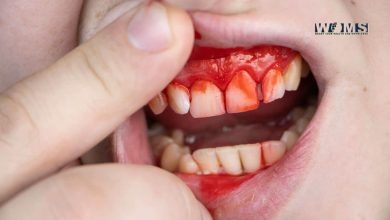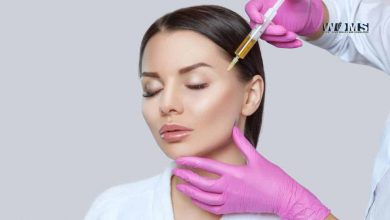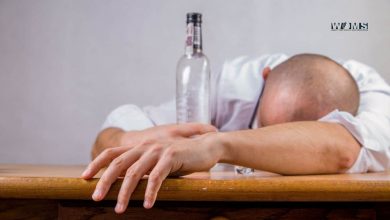Relation Between Hormone Levels and Hair Loss in Men

A good indication of your body’s general health is hair loss. Men occasionally may believe that hair loss is a normal part of aging, but there are hidden factors that could be causing unwanted hair loss.
Stress, hormonal or nutritional imbalance, illnesses, or environmental factors can all contribute to hair loss. The only method to effectively cure hair loss or baldness, no matter how severe it may be, is to identify the underlying cause.
Defining Hair Loss
Alopecia is the medical term for male pattern baldness, which describes the gradual loss of scalp hair. According to the National Institutes of Health, about half of American men experience androgenetic alopecia, often known as male pattern baldness.
Hair thinning and loss can be related to hormonal changes and hereditary propensity, both of which play a role in the gradual shrinking of hair follicles. Hair follicles can recover their ability to produce hair with the right care. This results in thinning hair or even complete baldness in areas where hair follicles have become inactive. You may need a hair transplant in some cases.
Increased levels of androgens (male hormones) cause hair follicles to tighten and decrease the length of the hair’s development cycle, leading to increased hair loss.
An androgen called dihydrotestosterone (DHT) slows down the development of new hairs after the natural shedding of old ones.
Factors Affecting Hormonal Levels and Hair Loss
Low- to high-level hormonal abnormalities in men may exist. Factors such as environment, age, lifestyle, mental state, and medical issues all play a role in these differences. If you were wondering, “does hormone imbalance trigger hair loss?” The response is yes.
1. Andropause
The male equivalent of menopause, andropause, occurs when males reach middle age. Hormonal fluctuations affect a man’s physiology, psychology, and behavior, similar to those in women. Changes in hormone levels occur naturally throughout life, but they can be managed with effective and safe treatments.
As men get age, their bodies produce less testosterone, which might lead to thinning hair on the scalp with increased hair growth in unusual locations like the nose and ears. The patient’s hormonal balance is evaluated using laboratory tests to establish if the imbalance is mild, moderate, or severe.
BHRT (Bioidentical Hormone Replacement Therapy) can help men rebalance their hormones and improve their general health, as well as restore their hair to its normal growth pattern. Your doctor may be able to choose the most appropriate course of therapy for you after a proper diagnosis has been made.
2. Lifestyle
Hormonal harmony can be greatly aided by careful eating. Too little protein, for instance, has been shown to disrupt otherwise healthy growth patterns. Hormonal imbalance can be caused, or at least exacerbated, by a diet deficient in nutrient-rich plant foods. Alcohol and processed foods, like those made with soy, are also known to reduce testosterone levels.
Lack of sleep and smoking both interfere with the body’s natural ability to produce hormones. When hormones are out of balance, it’s often because of emotional behaviors. Depression, anxiety, and other mental diseases can cause disruptions in the endocrine system as well as disturb normal hormone levels.
3. Environmental Factors
A lack of testosterone or an increase in estrogen can both lead to balding. A hormonal imbalance can be brought on by exposure to environmental factors, including plastic containers, cosmetics, air fresheners, or canned foods.
Pollution and other forms of environmental stress can also contribute to physiological dysfunction. While you may be powerless to prevent exposure to some environmental factors, you may take steps to reduce your exposure to others by analyzing your immediate environment and adjusting your daily habits accordingly.
4. Medical Conditions
Antidepressants are an example of a group of medications known to impact a person’s hormonal balance that is used to treat physical or mental disorders.
Cancer, gout, arthritis, high blood pressure, and other illnesses can all contribute to a hormonal imbalance that can result in hair loss. If the illness is not addressed for an extended time, the hair loss may become permanent when the condition gets better.
Chemical messengers like hormones transmit instructions to cells, tissue, and organ function. When present in excess or deficiency, some hormones can cause uncomfortable sensations that impact daily life. Testosterone is crucial for male maturation.
Signs of Hormonal Imbalances
The following are some of the symptoms that may occur due to insufficient testosterone:
- Gynecomastia (Development of breast tissue).
- Breast tenderness.
- Hair loss on the beard, scalp, and body.
- Erectile dysfunction (ED).
- Hot flashes.
- Lack of muscle mass.
- Loss of bone mass, as in osteoporosis.
- Decrease in mental acuity and concentration.
Be mindful of your body and be alert to any changes. Subtle changes are often overlooked, yet they are essential for doctors to identify and treat hormone abnormalities.
Diagnosis and Treatment
Your statement to your doctor is essential to a correct diagnosis. You should bring a list of your current prescriptions, vitamins, and supplements and a timeline of how long you’ve been experiencing your symptoms.
Blood tests to measure testosterone, estrogen, thyroid, and cortisol levels may be recommended by your doctor. For example, the prostate and the thyroid may be subject to additional testing if deemed necessary. A professional medical practitioner will decide what tests are necessary in order to attain a correct diagnosis.
The root cause of the hormone imbalance will determine the diagnosis. For example, male pattern baldness is typically associated with low testosterone levels. Testosterone levels can be lowered by addressing the underlying causes, including diet and exercise routine changes.
Further, numerous treatments and therapies exist to aid the restoration of normal hormone levels in the body.
Final Words
Experiencing hair loss might be your body’s way of signaling that something else is wrong and needs your immediate attention. Though hair loss can be seen due to genetics, an issue with hormones is one of the other common reasons.
So, maintaining the proper level of hormones is significant for preventing hair loss. Try to have a thorough understanding of your body to help yourself not just with your hair but also to be prepared to deal with any issue that arises in your body.




